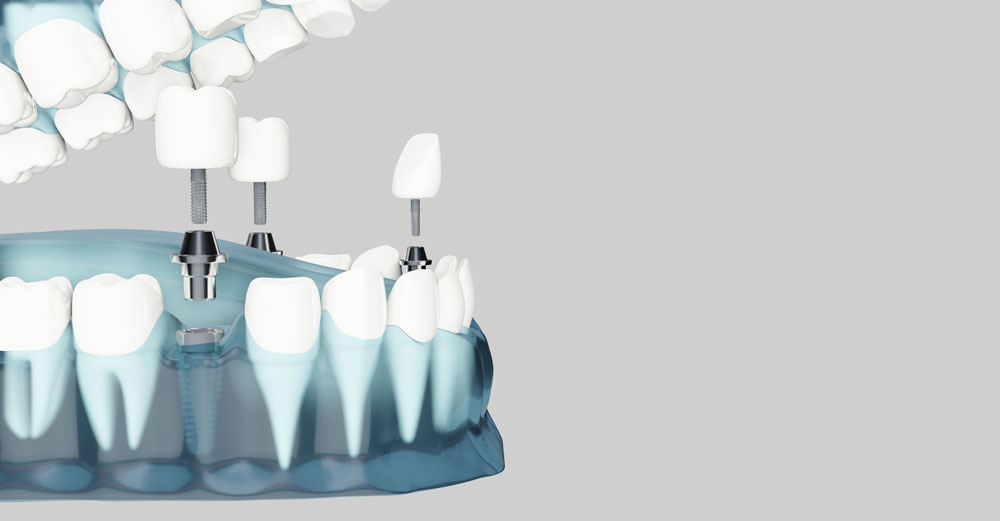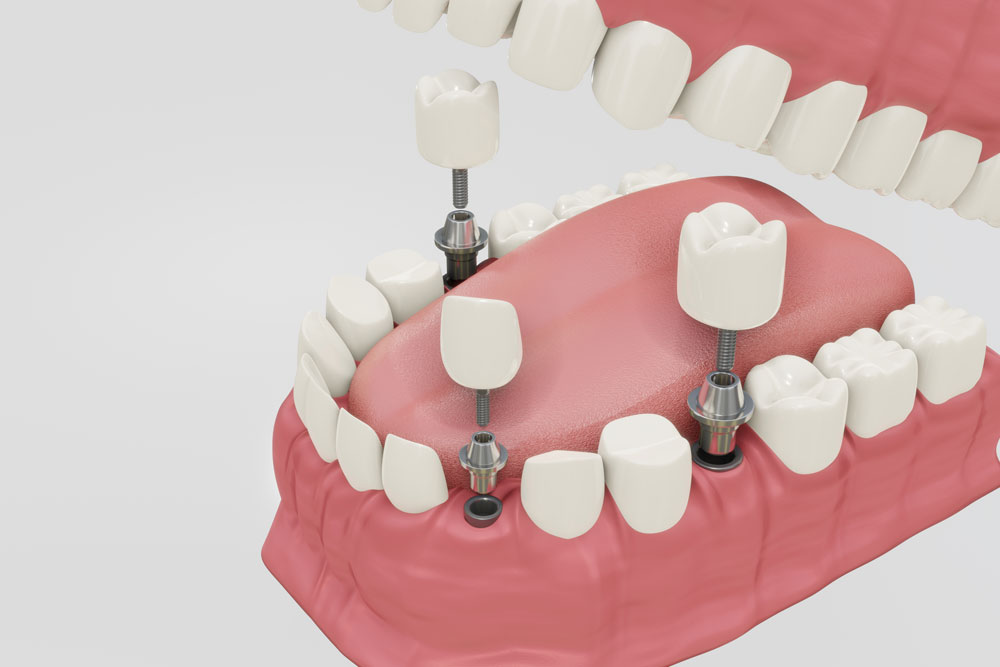Things You Need to Know About Dental Implants

Things You Need to Know About Dental Implants
- 16 August 2022
- 4566 views
Dental implant is a treatment applied to replace missing teeth and increase the life comfort of the person.
This content is for informational purposes only and does not replace medical advice, diagnosis, or treatment. Please consult a healthcare professional for any health concerns.
Table of Contents
Dental implants are a very successful treatment method for completing missing teeth. However, no matter how successful the treatment is, the experience of the physician and the patient's adequate knowledge of the treatment are the most important factors.
What is a Dental Implant?
A dental implant means the replacement of the missing tooth with surgical methods to restore its functions and aesthetic appearance. Well; is the filling of missing teeth.
Implants are artificial tooth roots compatible with the jawbone. The fact that they are made of tissue-friendly titanium is very important in terms of the reliability of the treatment and its compatibility with the jawbone.
In Which Situations Is Implant Treatment Applied?
Dental implant is a treatment method that can be applied in single or multiple tooth deficiencies. It can even be applied when there are no teeth left in the mouth.
Is an Implant Made for Every Missing Tooth?
Implant root is not applied separately for each missing tooth. 2 implants to be placed in relation to the area where the implant treatment will be applied serve the function of 2 or 4 teeth.
Who Can’t Have Implant Treatment?
Dental implants are not a treatment that can be applied to everyone. Implant treatment can not be applied to the following patients:
- Patients with poor general health status,
- Patients with habits such as excessive smoking,
- Patients whose jawbone structure is not suitable,
- Patients with advanced diabetes,
- Patients with systemic diseases,
- Patients with clenching problems.
Your dentist should determine whether you are a suitable candidate for implant treatment. For this reason, you should definitely consult a dentist to get precise information.
What are the Advantages of Implant Tooth?
The advantages of a dental implant are as follows:
- The treatment does not require the cutting of adjacent teeth, unlike treatment methods such as bridges in case of single tooth loss. Therefore, the surrounding teeth that are healthy are preserved.
- Fixed prostheses are generally preferred for excessive tooth loss. However, a solid foundation is needed to build a bridge. Implants are a highly effective treatment for building this solid foundation.
- Over time, bone resorption occurs in the edentulous bone area. Because there are no teeth, the bones cannot perform their functions and become smaller. In these cases, dental implant treatment can be applied to prevent bone resorption. In other words, bone resorption in the toothless bone area is prevented with a dental implant.
- Since it is a very durable material, it can be used for many years if properly looked after.
- It gives a natural tooth appearance. In this way, it prevents aesthetic concerns.
- It provides the recovery of chewing function, which is deteriorated due to missing teeth. In this way, it allows you to eat healthier and contributes to your overall health.
How Is Dental Implant Treatment Performed?
Implant treatment is performed in two stages. Its duration is longer than other dental treatments.
In the first stage, the implant is placed in the jawbone. After the implant is placed in the jawbone, it is necessary to wait 2-3 months. During this time, the implant and bone fuse. Waiting time varies from person to person. Temporary prosthesis is applied within 2 days so that the person does not become toothless during the waiting period.
After the fusion of the bone and the implant, the second stage is passed. The second stage is the placement of the prosthesis on the implant. After the implant-supported prosthesis is placed, the treatment is completed.
During the treatment, the process is progressed by checking the compatibility of the teeth with your mouth. Therefore, the most suitable teeth for your mouth are selected.
Before starting the dental implant treatment, local anesthesia is applied to prevent any pain or pain sensation. A slight pain may be felt after the effect of the anesthesia wears off. However, this pain is relieved with painkillers prescribed by your dentist. Therefore, contrary to popular belief, implant treatment is not a very painful or painful treatment.








